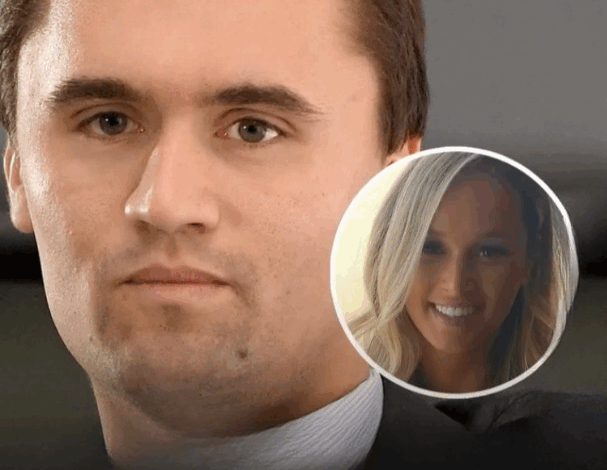Workplace Controversy at Englewood Health Sparks National Debate

A workplace incident at Englewood Health in New Jersey has captured national attention, raising questions about professional boundaries, free speech, and the influence of politics in healthcare. The controversy began when nurse Lexi Kuenzle reported a colleague, Dr. Matthew Jung, for allegedly celebrating the assassination of conservative commentator Charlie Kirk. According to Kuenzle, her actions were motivated by professional responsibility and concern over workplace conduct. The hospital responded by suspending both employees pending a thorough investigation, highlighting the serious implications of the situation.
The case quickly drew widespread media coverage, sparking debates across social media, news outlets, and professional networks. Many observers questioned how political views intersect with workplace behavior and the expectations of healthcare professionals, especially in environments where trust and collaboration are essential.
The Incident and Immediate Fallout
According to reports, Lexi Kuenzle, a registered nurse at Englewood Health, became aware of remarks allegedly made by Dr. Matthew Jung that she considered deeply inappropriate. She reported the incident to hospital administration, citing her duty to maintain a safe and respectful workplace.
The hospital acted swiftly, suspending both employees while a formal review was conducted. While the details of the alleged comments remained private, the story quickly resonated beyond the hospital, igniting national conversation about professional ethics, freedom of expression, and political polarization in high-stakes environments.
Experts say workplace disputes involving political opinions are increasingly common, particularly in healthcare, where staff must work closely under stressful conditions. “Even a small breach of professional conduct can have ripple effects in hospitals,” says Dr. Susan Meyer, an expert in healthcare ethics. “Hospitals rely on trust between staff, and any perception of inappropriate behavior can undermine patient care and team cohesion.”
Resolution and Consequences
After weeks of investigation, Englewood Health made a final decision: the hospital reinstated Nurse Kuenzle, affirming that her actions were in line with professional standards. Meanwhile, Dr. Jung chose to resign, concluding his tenure at the hospital. The resolution sought to balance accountability, safety, and professional integrity.
While the hospital’s decisions closed one chapter, the broader conversation continued. The case underscored the tension between free speech and professional responsibility. In healthcare, employees are expected to maintain conduct that aligns with ethical and institutional standards, even in off-duty contexts. Yet, employees also retain rights to personal expression, creating a delicate balance that institutions must navigate carefully.
Political Divisions in the Workplace
The controversy reflects a growing trend in workplaces nationwide: the intrusion of political divisions into professional settings. From hospitals to corporate offices, employees are increasingly polarized, and social media amplifies conflicts that might previously have remained private. Political disagreements can affect team morale, disrupt collaboration, and even lead to legal challenges when they intersect with workplace policies.
In healthcare settings, the stakes are particularly high. Nurses, doctors, and support staff must rely on each other to provide safe and effective patient care. Any disruption in workplace harmony can have real consequences, affecting both staff well-being and patient outcomes.
Balancing Free Speech and Professionalism
At the heart of the Englewood Health case is a complex question: how should institutions balance employees’ right to free expression with the need to maintain professional standards? Legal experts note that while employees in the United States generally enjoy free speech rights, these rights do not shield behavior that violates workplace policies or creates a hostile environment.
“Free speech is not absolute, especially in workplaces where patient safety and professionalism are paramount,” explains labor attorney Karen Feldman. “Hospitals have the right—and the responsibility—to ensure that staff conduct aligns with ethical expectations, particularly when public statements could affect workplace relationships or patient trust.”
This tension is likely to persist as political discourse becomes increasingly heated. Institutions must develop clear policies, provide training, and ensure that reporting mechanisms exist for employees who feel that professional boundaries are being crossed.
The Role of Media and Public Opinion
Media coverage of the Englewood Health incident played a major role in elevating the story from a local workplace dispute to a national debate. Social media platforms, in particular, amplified opinions from all sides, generating intense scrutiny and public commentary. Some defended Nurse Kuenzle’s decision to report the incident, citing professional ethics, while others emphasized the importance of free expression and cautioned against overreach by employers.
The case also illustrates the way social media can influence institutional decisions. Hospitals and corporations now operate in an environment where internal matters can quickly become public controversies, making careful communication and adherence to policy more important than ever.
Conclusion
The Englewood Health incident is more than a local workplace story—it reflects broader societal challenges. Political divisions, amplified by social media, are increasingly affecting workplaces, forcing institutions to navigate complex ethical and legal terrain. While the hospital resolved the immediate situation by reinstating the nurse and accepting the doctor’s resignation, the national conversation it sparked will continue.